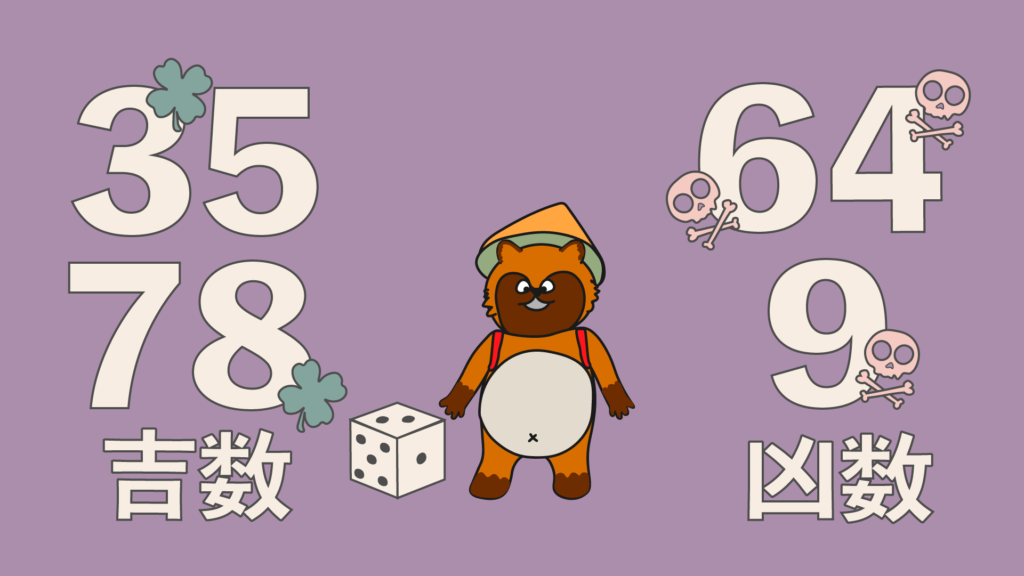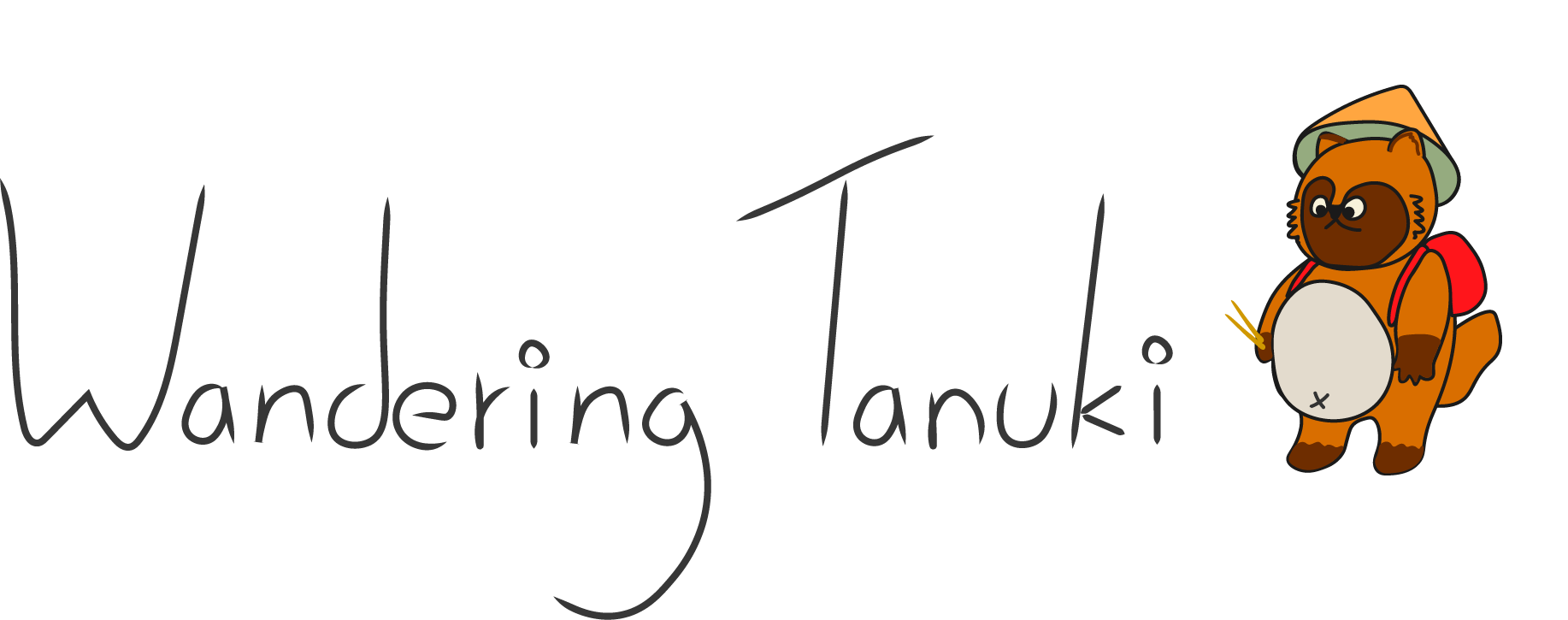Unlucky and lucky numbers in Japan
Note: As an Amazon Associate, I earn from qualifying purchases.
Depending on which country you’re in, there are different unlucky and lucky numbers. In the U.S., we often consider 13 to be a bad number or in Italy it is 17. In Japan, there are also unique sets of numbers that are either unlucky or lucky.
Next time you’re choosing a lottery number, try out the Japanese lucky numbers and avoid the bad ones. Maybe you’ll have better luck!

Unlucky numbers – 凶数 (kyousuu)
In Japanese, we call unlucky numbers 凶数 (kyousuu), which means numbers that are bad or bring misfortune. Since Japanese is syllabic, many of these numbers sound like words which are unlucky.
4 – 四 (yon/shi)
This number is unlucky because it sounds very similar to the word for death, 死 (shi). In Japan, people often avoid the 4th floor. It’s also uncommon to have room numbers ending in 4, especially in hospitals.
6 – 六 (roku)
Another unlucky number is 6. Its’ pronunciation as a counting number is muttsu. This can sound like the word for nothingness, 無 (mu). Gate numbers for airports, stadiums, and railway platforms avoid the number 6 for this reason.
9 – 九 (kyuu/ku)
Like the other two numbers, this number also sounds like an unlucky word, 苦 (ku). This word means to be in agony or to suffer.
42 – 四十二 (yonjuu ni)
This number sounds like “to die” when 4 is combined with 2. It can be read as 死に (shini). Sports players typically avoid this number on sports jerseys.
49 – 四十九 (yonjuu kyuu)
49 is a number that combines the two most unlucky numbers. When put together, it can mean the suffering of death. Like 42, it’s a number that sports players avoid on their jerseys.
吉数 (kissuu) – Lucky numbers
Lucky numbers are called 吉数 (kissuu) in Japanese. These are numbers which bring luck, as well as other qualities like prosperity, peace, and growth.
3 – 三 (san)
This number has been a lucky number for a long time. As you can see in the kanji, or Japanese character, it is a combination of one, 一 (ichi), and two , 二 (ni). It represents creation, time (past, present, and future), and the three elements of body, mind and spirit. When pronounced as a counting number, 3 can also be mittsu. This sounds like the word 蜜 (mitsu), meaning honey. Honey can be a metaphor for prosperity.
5 – 五 (go)
In the fifth and sixth centuries, there was a type of natural science and cosmology called 陰陽道 (onmyodo), consisting of five elements. These elements were water, wood, fire, earth, and metal and the number five came to represent peace and balance.
7 – 七 (nana/shichi)
“Lucky seven” is a western concept but it was adopted into Japanese culture through baseball. It was common in baseball for losing teams to overturn the game in the seventh inning. In addition, there is also 七福神(shichifukujin), which are the “Seven Lucky Gods” in Japanese mythology. This is a group of gods that come from Shinto and Buddhism and Japanese people believe they can bring luck in different ways. In this way, seven can be a considered a lucky number in Japan.
8 – 八 (hachi)
8 is a universal lucky number in many countries. When 8 is turned to the side it can look like infinity. In Japan, the kanji 八 looks like things are opening up and can represent prosperity and growth.
I hope this article on unlucky and lucky numbers in Japan gave you some new perspectives on what numbers can mean. Next time you’re in Japan, look out for numbers that seem avoided or that others find lucky. Stay tuned for more articles on Japanese learning and culture and check out my other articles like Ojigi or Bowing in Japan: Learn the Basics!
~Tanuki






Just for the record, looooooong before baseball, there were 七福神. How actually did you miss that?
Hi T.Igarashi! thanks for reading the article! That’s a good point, somehow I didn’t think of that 🙂 I appreciate your suggestion!
Hi, I was wanting to know if you have read the manga/novel “Three Days of Happiness” by Sugaru Miaki. If not, please give it a read as it is 16 chapters only and has a really powerful story.
That story lead me to this article. I have been trying to do some quick research on the significance of the number 3 in Japanese culture. I was wondering if you could provide any sources of why 3 represents what it does?
Again, I highly recommend you read this story, because it has the repetition of the number 3 over, and over, and over again and it has to mean something. Reviews and discussions of this story are so few I couldn’t find anyone talking about it.
Thanks for the article though, it did help me place some meaning as to why the number 3 is repeated throughout the story so much.
Hi Bradley,
Thank you for your comment! I haven’t read that manga/novel but I would definitely be interested to check it out! Yes three is an important number in Japanese culture. http://otoko-nayami.net/zatsugaku/nippon/kisuuguusuu This is a site that is in Japanese that talks about this, there is also some additional info about the association of the number three in Japan. I hope that is helpful!